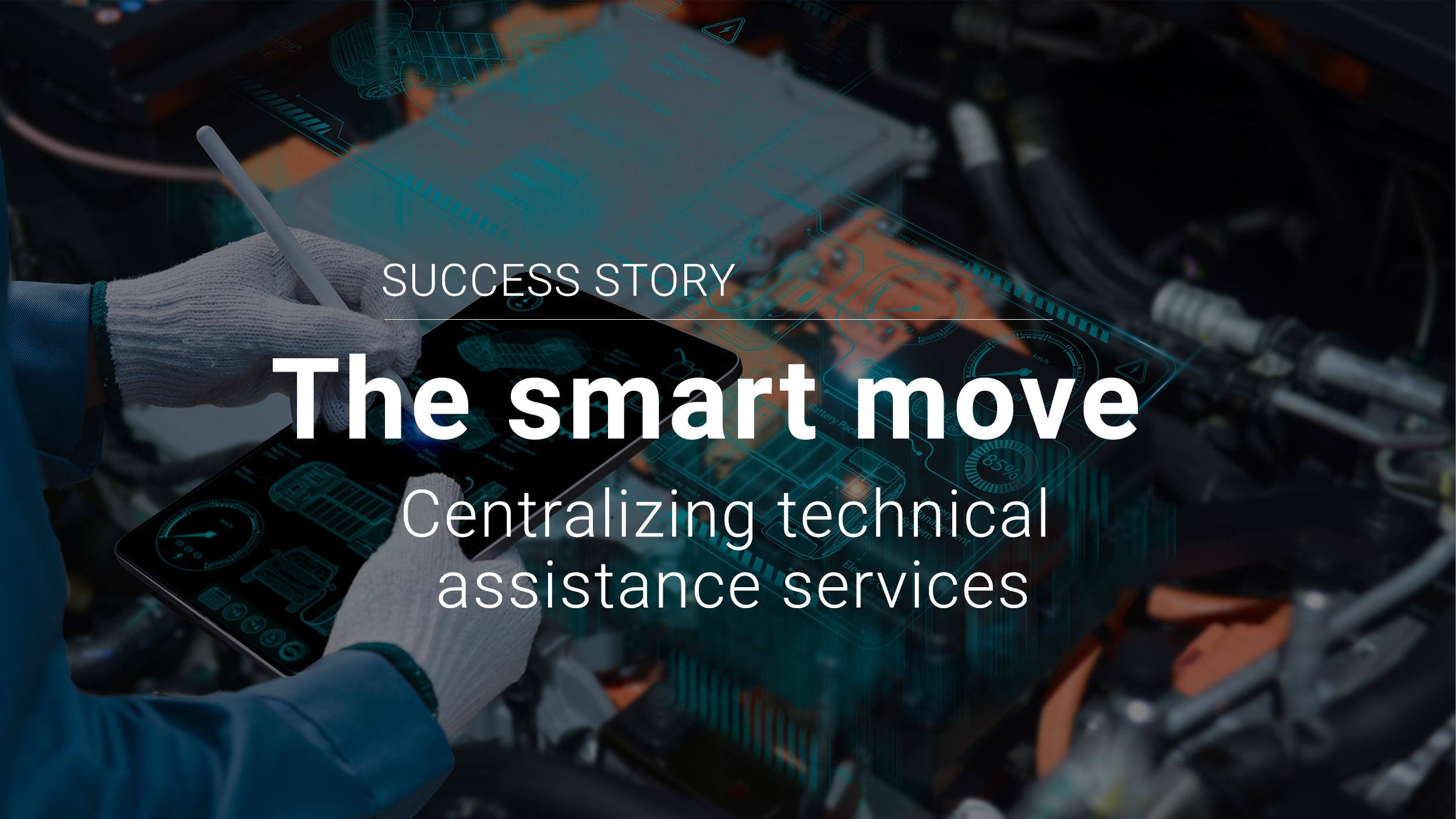
Revolutionizing automotive assistance
MSX successfully established a regional Hub in Kuala Lumpur, delivering critical Technical Assistance services for a multinational automotive manufacturer.
The primary objective was to deliver technical assistance on demand, enhance operational efficiency, and generate substantial cost savings for the client. The hub extends support to a broad range of queries, including vehicle diagnostics and other access tools, addressing escalated issues from Dealers and Importers across diverse linguistic backgrounds. MSX delivers high-quality services tailored to the specific demands of this region, with a notable reduction of immobilized vehicles observed, ultimately minimizing rental costs for the OEM.
This MSX case study highlights the profound transformation in structuring operations and achieving remarkable efficiency improvements, demonstrating significant benefits in terms of cost-effectiveness, speed, and overall return on investment.
Main challenge: Fragmented operations and language variants
Significant technological differences utilized by the OEM across regions made it difficult for the OEM to assemble a specialized team capable of addressing these challenges effectively.
Technology disparities, fragmented operations, and the need to optimize efficiency and standardize services created the need for MSX to centralize the OEMs technical helpdesk (THD) operations, bringing together knowledge from various local sources and catering to the diverse needs of imported cars. The MSX solution provided comprehensive language support across regions and implemented efficient technological platforms to drive growth. Over time, THD became the primary focus for the entire region.

Transforming Technical Assistance services
In an attempt to inject standardization across regions, MSX’s centralized solution aimed to unify processes and enhance operational coherence throughout the organization. The program delivered effective project management processes into the manufacturer’s Technical Assistance services, and over the course of six years, the program matured from a purely manual THD operation to a digital solution, incorporating a standardized ticketing system.
This innovative approach also allowed for the standardization of operational Key Performance Indicators (KPIs) and the development of a common language among all stakeholders. Standardizing operational KPIs was crucial for ensuring consistency and enabling agents to resolve 95% of cases within 24 hours. The solution, while conceptually straightforward, was complex to implement in the fragmented environment, harmonizing processes and achieving standardization.
Success through data-driven insights

The outcome of the solution has been marked by significant improvements in various KPIs. Metrics focusing on lead time and solutions provided in less than one, two, and/or 24 hours have all shown remarkable competitiveness. Additional measures relating to quality, such as a reduction in negative feedback and improved customer satisfaction highlight the success of the solution and reflect a high level of service quality. Moreover, the program has effectively decreased vehicle downtime for customers, consistently maintaining immobilized vehicles at figures 90% below the target. This is crucial in ensuring that customers have minimal days without access to their vehicles, ultimately enhancing their overall experience.
This centralized THD approach has allowed the OEM to gain valuable insights. Analysis of ticket history data has provided information that suggests certain components or features may require modification or improvement based in reoccurring issues reported by local customers. This data-driven approach to addressing customer needs has not only enhanced product quality and customer satisfaction but also has the potential to deliver more targeted research and development efforts, ultimately leading to better-designed vehicles that align with local preference and requirements.
Future-proofing automotive assistance
During the program’s transition phase, MSX assisted in bridging the gaps for local importers and overcoming language barriers. As artificial intelligence, machine learning, and autonomous features reduce the management of common cases, the potential offshoring opportunities of THD operations to strategically located sites near the OEM’s manufacturing plant provides access to master technicians and remote diagnosis tools that will significantly improve the turnaround time for complex tickets.
As the regional Hub in Kuala Lumpur continues to evolve and enhance its capabilities, it has already delivered significant improvements in efficiency, customer satisfaction, and cost-effectiveness for the OEM. The centralized approach has not only resolved operational challenges but also provided valuable insights for future product enhancements. By leveraging advanced technologies and expanding its capabilities, the program is posed to further enhance its support and deliver ever greater value to the client while driving innovation and improved customer experiences.

cases resolved within <24 hours
CSI achieved (12% above target)
fewer immobilized vehicles that target
cases resolved within <24 hours
CSI achieved (12% above target)
fewer immobilized vehicles that target
Fast facts
Customer: Multinational Automotive Manufacturer
Business Challenge: Streamline the delivery of technical assistance across regions, enhance operational efficiency, and generate substantial cost savings.
Geographical coverage: India, Asia-Pacific, and China
Solutions implemented:
Established a regional hub in Kuala Lumpur to deliver Technical Assistance Services across the entire APAC region.

